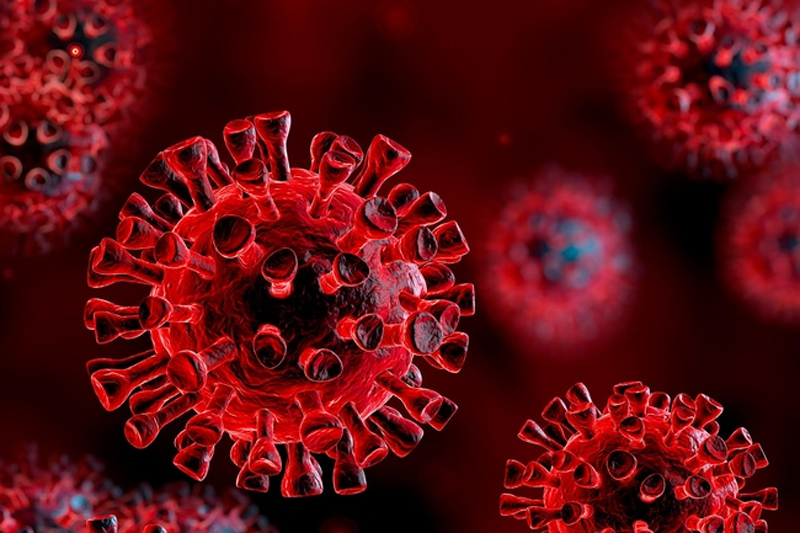‘Be watchful in giving lockdown relaxations to avoid backlash’
Inability to enforce discipline responsible for crisis
Mohinder Verma
JAMMU, May 27: The second wave of COVID-19 pandemic in the Union Territory of Jammu and Kashmir has reached plateau and will die down in next few weeks. However, the Government will have to be watchful while giving relaxations in the lockdown in order to avoid backlash as inability to enforce COVID appropriate discipline in late 2020 and early 2021 led to the prevailing crisis.
This has been mentioned by the Advisory Committee in its latest report submitted to the Chief Secretary and Financial Commissioner Health and Medical Education today, the copy of which is available with EXCELSIOR.
“All pandemics are apt to follow a wave pattern over the defined period and generally show waves of varying degree, intensity and severity. The ensuing waves are more severe and more lethal than the previous wave”, said the Advisory Committee, adding “barring few metropolitan cities, the COVID-19 epidemic in India and the Union Territory of Jammu & Kashmir followed uniform epidemiological pattern though we lagged the national curve by few weeks”.
The COVID first wave was slow, gradual and had the classical characteristic of involving the elderly and people with co-morbid diseases while as second wave was abrupt, steep and showed a distinct pattern of involving young and middle-aged with no co-morbidities with more severe disease, altered disease pattern and higher case fatality.
“There are indications that the second wave has reached a plateau and will die down in few weeks. The deaths will start declining one, two or more weeks after the decline of the epidemic”, the Advisory Committee said, adding “the lockdown for the last several weeks had a distinct effect on taming the epidemic faster than it would and needs to have a gradual guarded watchful relaxations to avoid a backlash”.
It is pertinent to mention here that present lockdown will come to an end on May 31 in all the 20 districts of the Union Territory of Jammu and Kashmir.
As per the Advisory Committee, apart from droplet spread of disease, the second wave showed a spread of disease through aerosol phenomenon in a poorly aerated closed environment and super spreader phenomenon within homes. “So, COVID appropriate policy and advice need to be redrafted with these transmission routes in mind”, the Panel has suggested.
Stating that there are definite clues that the second wave occurred due to the introduction of 2 variants into the community from North India (UK variant) and other parts of India (Indian variant), the Advisory Committee said, “this happened because we called COVID appropriate discipline for a toss in late 2020 and early 2021 and our inability to enforce travel advisory protocol”.
The first wave was exclusively caused by the wild strain of the virus and there were no variants in the community in 2020. “As of today, around or over 60% of infections are caused by variant strains of the virus both in Kashmir and Jammu provinces and have nearly replaced the wild strains”, the committee said.
Pointing towards the indications that the Indian variant may be more prevalent in Jammu than in Kashmir province, the committee further said, “temporally both variants were introduced in the community by January-February 2021 and took over the wild strain of the virus fast (within a matter of weeks) and nearly displaced it by April-May 2021”.
According to the report, COVID second wave showed a higher caseload in Kashmir province and a higher case fatality rate in Jammu. “This could be due to the different proportion of the 2 variants in the two provinces. Kashmir province had a higher proportion of UK variants while Jammu province had a major contribution from the Indian variant. Longer distances, Jammu terrain and poor robustness of healthcare in Jammu could be other factors for higher mortality”, the committee said.
“As of today around two-third population in the Union Territory (both urban and suburban) is susceptible to infection. However, the susceptibility of special groups like children and pregnant women is not known as of now”, the committee further said.
The committee is comprised of Prof Mohammad Sultan Khuroo (Chairman), Dr Shakti Gupta (Co-Chairman), Prof A G Ahanger, Prof Samia Rashid, Dr Yashpal Sharma, Yasin M Choudhary, Dr Mohammad Salim Khan, Dr Muzaffar Jan, Dr Rahul Gupta, Dr Khalid (all members) and Dr Nighat Firdous (Special Invitee).


